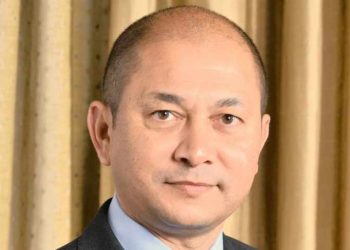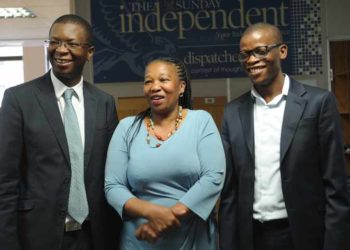Durban – The Competition Commission has been criticised for approving a deal that would result in two dominant players in the resources market that supplies coal to Eskom.
The South African Energy Forum (SAEF) launched scathing criticism of the transaction following the commission’s approval of Seriti Resources Holdings’ acquisition of South32’s SA Energy Coal’s (SAEC) 91.835% shares, which would make it the country’s biggest coal supplier to Eskom.
The forum represents 30 small coal mining companies, which, according to SAEF, stand to suffer business losses as a result of the merger. They also claim that the merger would result in 72% of Eskom’s coal supply coming from only the two companies.
In addition, it is believed that the chief executive of Seriti, Mike Teke, who is at the centre of the merger, donated R600000 to the CR17 election campaign that has since been mired in allegations of money laundering and vote buying at Nasrec.
Other individuals who have also donated to the campaign fund have since been elevated to board memberships in various state-owned entities.
When approached for comment on the CR17 funding, ANC spokesperson Pule Mabe said he knew nothing about Teke donating money to the campaign.
However, Seriti spokesperson Charmane Russell said Teke had, on a number of occasions, confirmed his donation to Ramaphosa’s campaign.
“This was not connected with either Masimong Holdings or Seriti in any way. Any suggestion of a connection between the transaction and the donation is both far-fetched and spurious,” said Russell.
She said the transaction would soon be tabled at the Competition Tribunal for its consideration.

Independent Media has seen an agreement document of the merger which, among others, stated Seriti paid SAEC R100 million up front at a total cost of R1.5 billion per annum.
SAEF, in turn, has since accused the commission of having failed to consider the impact of the merger to the country’s economy.
It also claimed the transaction would be detrimental to smaller players in the sector and would result in consumers of electricity paying exorbitant prices on four cost-plus contracts through the electricity tariff.
“Ignoring the concentration risk making Seriti the largest coal supplier to the only electricity provider at excessive cost-plus coal is not in the social or economic welfare of South Africans. The commission is creating the largest coal supplier to Eskom, in complete disregard of its role to create SMMEs,” read SAEF’s statement. In a statement released on September 6, the commission announced it had recommended that the Competition Tribunal should approve the move for Thabong Coal, which is “wholly owned” by Seriti, to acquire South32’s SAEC “with conditions”.
“The commission found that post-merger, Seriti would be the largest coal supplier to Eskom with a market share upwards of 30%,” read the commission’s statement.
However, SAEF pulled no punches in disapproving of the merger.
It said it had lodged a series of objections with the commission in November last year, July and last month, but it had fallen on deaf ears.
“This transaction has been treated as if it was in the toilet paper sector as opposed to a matter of national energy security. The commission is actually creating a majority supplier to Eskom with four cost-plus contracts when junior miners have zero, which is the opposite of the purpose of the commission. It is concerning that the commission is creating a dominant player, which then poses the question of whether the commission is missing the point of its purpose in the market,” said SAEF.
In the agreement document, South32 chief executive Graham Kerr said the sale of their interest in South Africa Energy Coal would enable the business to continue to operate safely and sustainably into the future for the benefit of its employees, customers and local communities, which was consistent with South Africa’s transformation agenda.
The commission’s spokesperson, Siyabulela Makunga, denied that it had ignored SAEF’s complaints and said instead that it had considered and responded to all the complaints raised.
“However, based on the entirety of the evidence and data available to it, the commission has adopted a view and approach that is different to that of SAEF. There is thus a difference of views between SAEF and the commission, rather than the incorrect and unfortunate characterisation that the commission has ignored the complaints raised,” said Makunga.
He said that prior to approving the merger, the commission conducted an investigation for more than seven months, which included engaging more than 20 different stakeholders such as coal customers, competitors, unions, the National Energy Regulator of South Africa, the Department of Mineral Resources as well as the Department of Public Enterprises, and SAEF.
“There were divergent views arising on the transactions, but all the submissions of all these various stakeholders were taken into account by the commission, which ultimately formulated its own independent views on all those submissions,” he said.
CR17 campaign ‘funders’
Nicky Oppenheimer: R10 million.
Raymond Ackerman: R1 million.
Andre Crawford-Brunt: R2 million
Maria Ramos: R1 million.
Mark Lamberti: R1 million
Stavros Nichalaou: Millions
Johnny Copelyn: R2 million.
An anonymous donor: R120 million
Absa Nation Building: R10.5 million
Nation Building: R8.5 million
H Trust: R10 million
Phembani Group: R2 million
Grovepoint Limited: R1.8 million
Aspen Pharmacare: R150 000
Eskom Board member Sifiso Dabengwa: R1.2 million
Former Eskom chairman Bobby Godsell: R250 000
Seriri Resources CEO Mike Teke: R600 000
Goldman Sachs Southern African CEO Collin Coleman: R70 000
Former Northern Cape premier Mannie Dipico: R50 000
Political Bureau


















